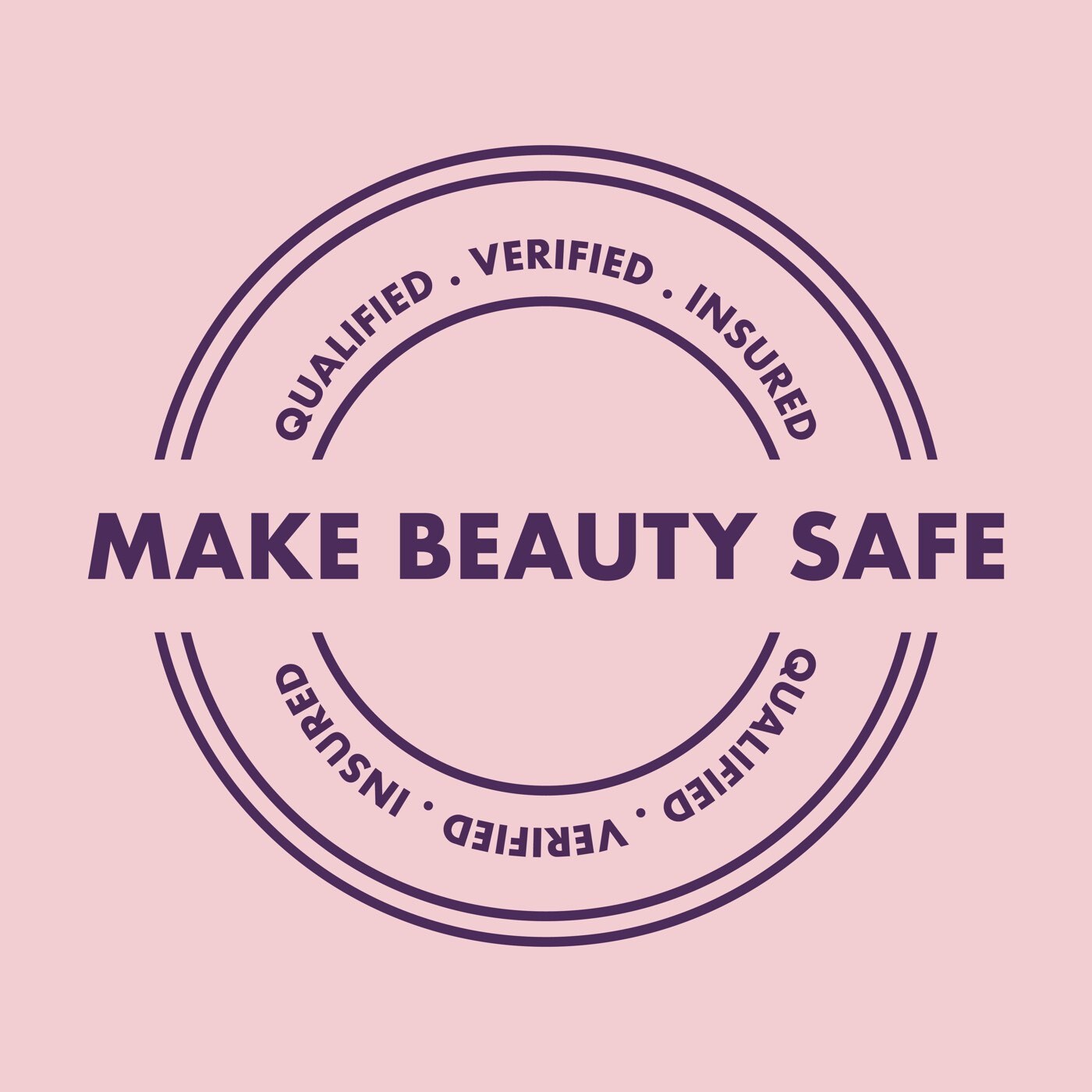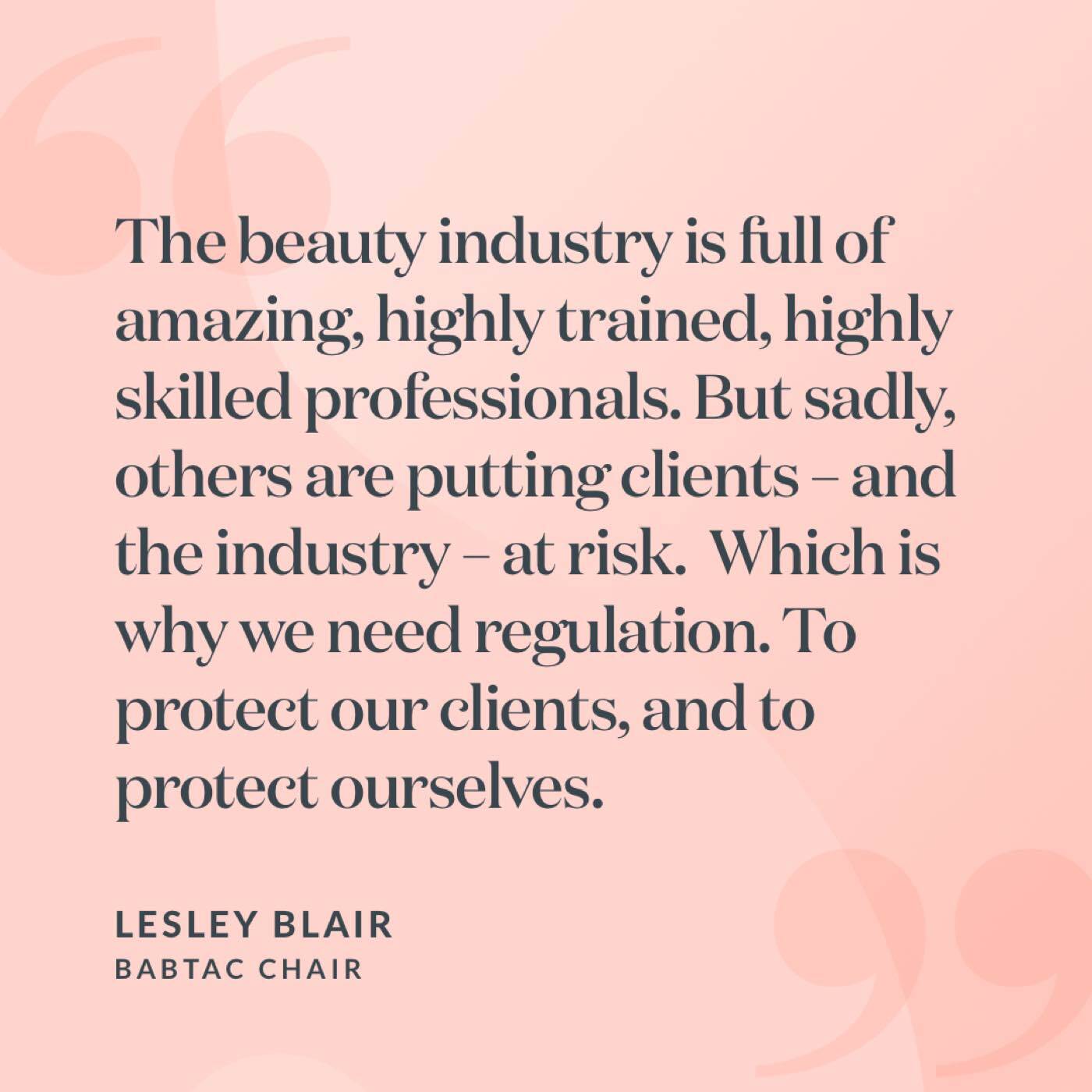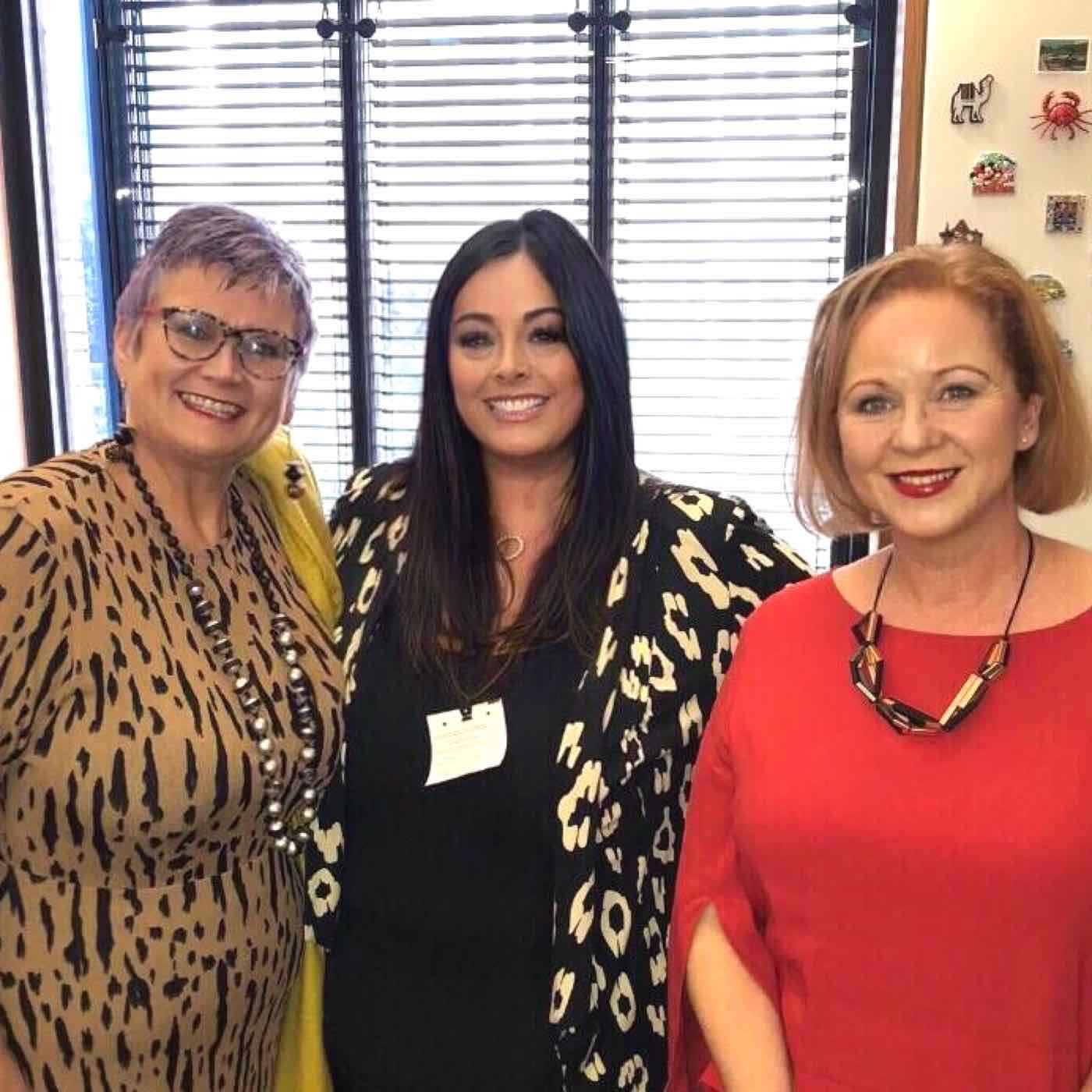The ‘Make Beauty Safe’ campaign
Following the launch of the Make Beauty Safe campaign, BABTAC Chair Lesley Blair talks to Timely about the need for regulation, accountability, and minimum standards in the UK beauty industry; to protect both members of the public and qualified professionals.
For anyone who is unsure, what is BABTAC?
We’re the British Association of Beauty Therapists and Cosmetologists; a UK membership and insurance organisation that was founded by therapists for therapists. We’re a non-for-profit, and represent over 10,000 industry professionals.
What is Make Beauty Safe?
It’s our campaign for industry regulations. As a minimum, we want to see a compulsory register to verify that all beauty therapists are competently qualified and have adequate insurance. The beauty industry should be safe for everyone involved; both clients and professionals.

Why is regulation so important?
So that we can define and create standards within the industry and have a level of accountability, which we don’t currently have. At the moment, for example, short courses can market themselves as reputable qualifications, and unqualified therapists can treat clients.
The beauty industry is full of amazing, highly trained, highly skilled professionals, who are incredible at what they do, and who provide very safe services. But sadly, others are putting clients – and the industry – at risk. Which is why we need regulation. To protect our clients, and to protect ourselves.
Will regulation aim to stop all short courses?
Definitely not. Quality short courses have a very important role in the beauty industry. But they are for continued professional development. We’ve got an ever-evolving industry, so we absolutely need to keep learning. Short courses should not be viewed as standalone qualifications; they’re an add on to regulated, fit for purpose qualifications. They’re essential for our industry to keep updated and to add to underpinning knowledge.

What about online learning?
It’s ideal to do theory training online. It doesn’t even need to be a real time-training, as long as there is a proper assessment at the end of it. But, for the practical side of things, there is no way that you can learn without hands-on training. It’s not just about being competent at doing the treatments, it’s about being able to handle things if something goes wrong. It’s about staying safe.
How will regulation impact those who don’t have adequate qualifications?
It’s actually already starting to; some of the London boroughs don’t allow beauty therapists to practice unless they have a nationally regulated level four qualification in some of the modalities.
When legislation is passed for national regulation of the beauty industry, you won’t be able to treat clients unless you have a qualification that is recognised and regulated by the Government. A huge amount of courses and so-called ‘qualifications’ will become obsolete.
Currently, an awful lot of courses are being mis-sold as being the ‘equivalent’ to national qualifications. The reality is that the so-called qualification you get from these courses is actually nothing more than a certificate of attendance. There is no such thing as a qualification that is the equivalent of a national qualification, or of national levels of qualification. It either is a national qualification, or it isn’t. There’s no grey area.
If you don’t have a Government recognised beauty qualification then the only way to future-proof yourself and your business is to get one. Aside from the issue of safety, you won’t be able to get insurance without a national qualification once regulations become law.
How do I check if I have a Government-regulated qualification?
Very easily. You just need to go to the website of the Government qualification issuing authority of the country that you live, or of the country in which you got the qualification.
In the UK, national standards for the hair and beauty industry are set by HABIA; the Hairdressing and Beauty Industry Authority. But each of the four nations has its own government department to issue, authorise, and regulate qualifications, exams, and tests.
In England, the Office of Qualifications and Examination Regulation (Ofqual) is the issuing authority. In Scotland, it’s the Scottish Qualifications Authority (SQA). In Wales, the issuing authority is Qualifications in Wales (QiW), and in Northern Ireland it’s the Council for the Curriculum Examinations and Assessment (CCEA).
 This photo was taken before Covid-19
This photo was taken before Covid-19
What needs to happen next to get the UK beauty industry closer to regulation?
The next step is to get full Government support. We’re well on our way to doing this, but we need to prove to the Government just how much support there is for regulation, both from those within the industry and from the general public. To achieve this, we’ve started a petition. We need a minimum of 10,000 signatures to get a response from the Government, and 100,000 signatures to be debated in Parliament.
If you support regulation of the UK beauty industry, then I really can’t over emphasise how important it is that you sign this petition, and that you share the link to it with your peers, clients, and friends. This issue affects everyone. We need to make the unregulated beauty industry a safer place.
To sign the BABTAC ‘#MakeBeautySafe: Make the unregulated beauty industry safer for consumers’ petition, please click here.
To check if your qualification is nationally recognised, visit:
For England: www.ofqual.gov.uk
For Scotland: www.sqa.org.uk
For Wales: www.qiw.wales
For Northern Ireland: www.ccea.org.uk


